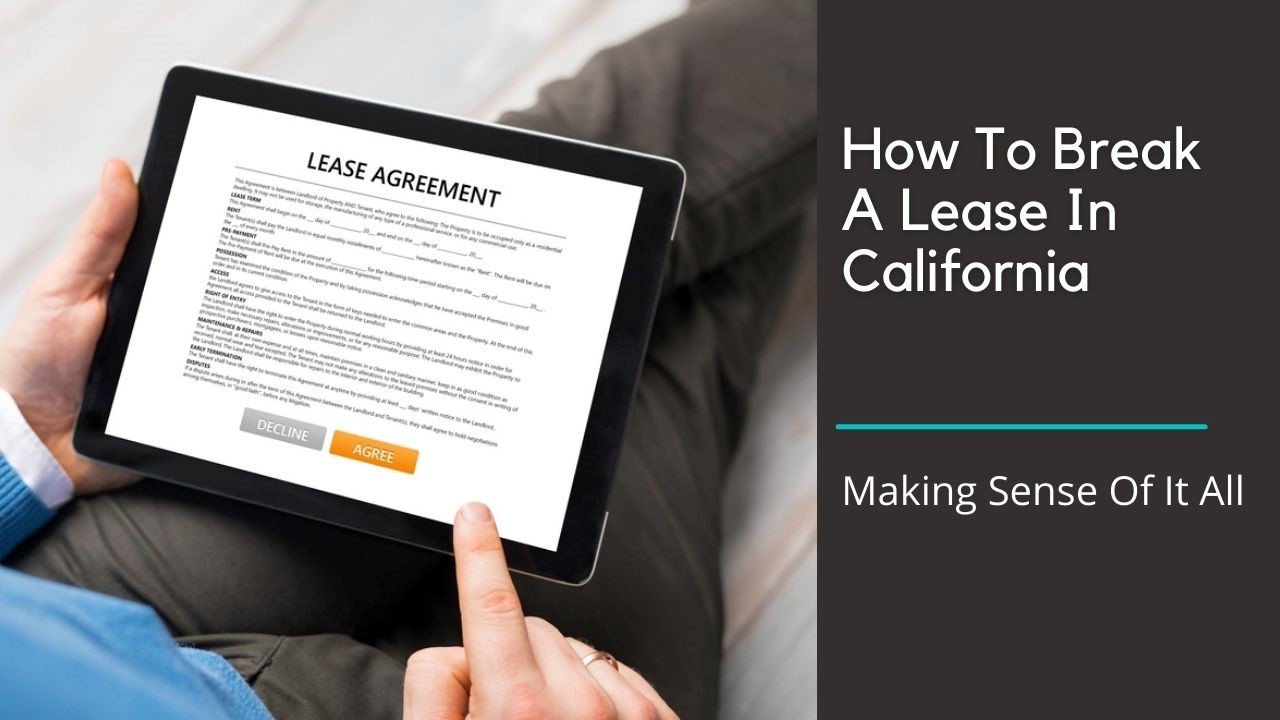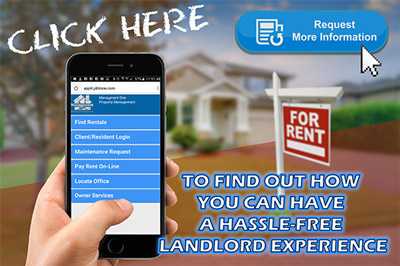
How to Break a Lease in California
A vacancy is one of the most expensive aspects of the rental industry. It is in a property manager's or owner's best interest to keep their rental property occupied by qualified residents. In a perfect scenario, a landlord will secure a long-term lease with a responsible resident who pays rent on time, takes care of the property, and gives proper notice about vacating the unit when the lease expires.
Many residents who sign a lease plan to stay for the total amount of time required in the lease, such as one year. But despite your best intentions, you might want (or need) to leave before your lease is up—for example, if you're a student at UC Riverside and only want to stay in your apartment for the period that school is in session.
Leaving before a fixed-term lease expires without paying the remainder of the rent due under the lease is called breaking the lease. Here's a brief review of resident rights in California to break a lease without further liability for the rent.
Resident Rights and Responsibilities When Signing a Lease
A lease obligates both you and your landlord for a set period, usually a year. Under a typical lease, a landlord can't raise the rent or change other terms until the lease runs out (unless the lease itself provides a change, such as a rent increase mid-lease). A landlord can't force you to move out before the lease ends unless you fail to pay the rent or violate another significant term, such as repeatedly throwing large and noisy parties. In these cases, landlords in California must follow specific procedures to end the tenancy.
For example, your landlord must give you three days' notice to pay the rent or leave before filing an eviction lawsuit. If you have engaged in any illegal activity on the premises, your landlord may give you an unconditional quit notice, giving you three days to move out. Residents are legally bound to pay rent for the entire lease term, typically one year, whether you continue to live in the rental unit—with some exceptions, as follows.
How to legally break a lease in California?
There are some important exceptions to the blanket rule that a resident who breaks a lease owes the rent for the entire lease term. You might be able to legally move out before the lease term ends in the following situations.
1. You or a Family Member Are a Victim of Domestic Violence or Other Specified Crime
California law provides early termination rights for residents who are victims of domestic violence, sexual abuse, and certain other crimes. Residents may terminate early not only when they are victims but also when they are a member of their household or an immediate family member—even if they do not live with them. With this said, there needs to be proof of this.
2. You Are Starting Active Military Duty
If you enter active military service after signing a lease, you have a right to break the lease under federal law. You must be part of the "uniformed services," which include the armed forces, commissioned corps of the National Oceanic and Atmospheric Administration (NOAA), commissioned corps of the Public Health Service, and the activated National Guard. You must give your landlord written notice of your intent to terminate your tenancy for military reasons. Once the notice is mailed or delivered, your tenancy will terminate 30 days after the date that rent is next due, even if that date is several months before your lease expires. In the past, your orders needed to be more than 60 miles away from your residents. As of January 2020, that is no longer the case.
3. The Rental Unit Is Unsafe or Violates California Health or Safety Codes
If your landlord does not provide habitable housing under local and state housing codes, a court would probably conclude that you have been "constructively evicted." Meaning the landlord, by supplying unlivable housing, has for all practical purposes "evicted" you, so you have no further responsibility for the rent. California law sets specific requirements for the procedures you must follow before moving out because of a major repair problem. The problem must be severe, such as the lack of heat or other habitable issues.
4. Your Landlord Harasses You or Violates Your Privacy Rights
Your landlord must give you 24 hours' notice to enter the rental property. If your landlord repeatedly violates your rights to privacy or does things like removing windows or doors, turning off your utilities, or changing the locks, you would be considered "constructively evicted," as described above; this would usually justify you breaking the lease without further rent obligation.
Landlord's Duty to Find a New Resident in California
If you don't have a legal justification for breaking your lease, the good news is that you might still be off the hook for paying all the rent due for the remaining lease term. This is because, under California law, your landlord must make reasonable efforts to re-rent your unit—no matter what your reason for leaving—rather than charge you for the total remaining rent due under the lease. So, you might not have to pay much, if any additional rent, if you break your lease. You need to pay only the amount of rent the landlord loses because you moved out early. This is because California requires landlords to take reasonable steps to keep their losses to a minimum—or to "mitigate damages" in legal terms.
So, if you break your lease and move out without legal justification, your landlord usually can't just sit back and wait until the end of the lease and then sue you for the total amount of lost rent. Your landlord must try to re-rent the property reasonably quickly and subtract the rent received from new residents from the amount you owe. Also, the landlord can add legitimate expenses to your bill—for example, the costs of advertising the property.
If your landlord re-rents the property quickly, all you'll be responsible for is the amount of time the property was vacant.
The bad news is that if the landlord tries to re-rent your unit and can't find an acceptable resident, you will be liable for paying rent for the remainder of your lease term. This could be a substantial amount of money if you leave several months before your lease ends. Your landlord will probably first use your security deposit to cover the amount you owe. But if your deposit is not sufficient, your landlord may sue you. Some Landlords will take a cash settlement like two months' rent from the day you move out, which then you know the total amount you need to pay, and most properties will re-rent in 60 days making the Landlord whole again as well, so consider this option as well.
How to Minimize Your Financial Responsibility When Breaking a Lease
If you want to leave early and don't have legal justification for doing so, there are better options than just moving out and hoping your landlord gets a new resident quickly. There's a lot you can do to limit the amount of money you need to pay your landlord—and help ensure a good reference from the landlord when you're looking for your next place to live.
You can help the situation a lot by providing as much notice as possible and writing a sincere letter to your landlord explaining why you need to leave early. Ideally, you can offer your landlord a qualified replacement resident, someone with good credit and excellent references, to sign a new lease with your landlord.











